By the Way: A voice from the Religious Left
| Published: 01-31-2025 4:52 PM |
Back in the heyday of Jerry Falwell and Pat Robertson, I frequently lectured on the origins of the Religious Right, pointing out that, despite all the leaders’ dodging and weaving, their movement began in defense of racial segregation in the 1970s, not in the more high-minded opposition to abortion.
During the question session that followed, almost without exception someone would ask something to the effect of, You’ve talked about the Religious Right. Is there a Religious Left?
My standard answer was, yes, there most definitely is a Religious Left, those who take seriously the words of Jesus to love justice and mercy and care for “the least of these.”
Problem is, I continued, those voices don’t enjoy the megaphone of cable networks and satellite communications.
On the day after Donald J. Trump was inaugurated as president for a second time, Americans heard unmistakably from the Religious Left.
Mariann Edgar Budde, the Episcopal bishop of Washington, preached a sermon about the importance of honesty, humility and respect for human dignity. Then, staring directly at the new and returning president, she added, “In the name of our God, I ask you to have mercy upon the people in our country who are scared now.”
Trump squirmed uncomfortably as the bishop talked about LGBTQ+ people cowering in fear. She mentioned those worried about immigration raids and deportation, disruptions that would tear families asunder.
“I ask you to have mercy, Mr. President, on those in our communities whose children fear that their parents will be taken away, and that you help those who are fleeing war zones and persecution in their own lands to find compassion and welcome here. Our God teaches us that we are to be merciful to the stranger, for we were all once strangers in this land.”
Article continues after...
Yesterday's Most Read Articles
 Citing insufficient evidence, county attorney declines to prosecute former Lebanon Public Works employees who were accused of theft
Citing insufficient evidence, county attorney declines to prosecute former Lebanon Public Works employees who were accused of theft
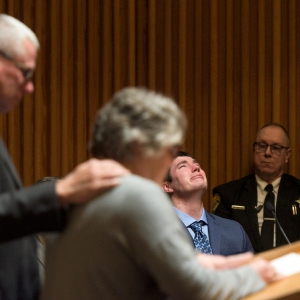 Dartmouth alumnus gets 20-to-40-year sentence in rape case
Dartmouth alumnus gets 20-to-40-year sentence in rape case
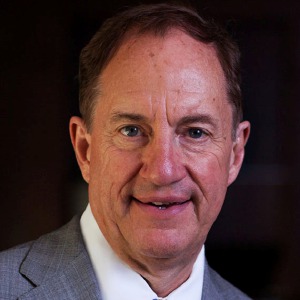 President of Vermont Law and Graduate School to step down this summer
President of Vermont Law and Graduate School to step down this summer
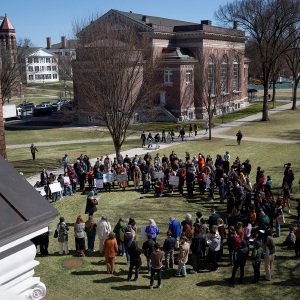 Walkout at Dartmouth calls attention to Trump’s attacks on universities, conditions in Gaza
Walkout at Dartmouth calls attention to Trump’s attacks on universities, conditions in Gaza
She added that “the vast majority of immigrants are not criminals.”
It was a bracing moment, an uncomfortable moment — as it should be. But as the bishop’s sermon ricocheted around the internet, Americans finally heard from the Religious Left, many, I expect, for the first time in a very long time.
The reaction was swift, and predictably partisan. Immediately following the event, Trump himself, doubtless drawing on his encyclopedic knowledge of Christian worship, allowed that he “didn’t think it was a good service.”
Still later, he resorted to insults and misogyny. He called Budde “nasty in tone, and not compelling or smart.” He continued: “The so-called Bishop who spoke at the National Prayer Service on Tuesday morning was a Radical Left hard line Trump hater.”
Trump’s sycophants joined the chorus. Franklin Graham, one of Trump’s evangelical acolytes, said it was “wrong” for the bishop to use the occasion “for her own political agenda,” neglecting to mention that the “agenda” was pretty clearly articulated in the New Testament. Karoline Leavitt, Trump’s press secretary, condemned the “disturbing comments from this bishop who chose to weaponize the pulpit.”
Sean Hannity of Fox, echoing Trump, also referred to Budde as a “so-called bishop,” an apparent reference to his view that women cannot be bishops. “She made the service about her very own deranged political beliefs with a disgraceful prayer full of fearmongering and division.”
In the Trump era, apparently, mercy is a “deranged political belief.”
Budde also had her defenders, generally those affiliated with mainline Protestantism, what I typically refer to as “brand-name Protestants”: Lutherans, Methodists, Congregationalists, Presbyterians, Episcopalians and others.
“A plea for mercy, a recognition of the stranger in our midst, is core to the faith,” Sean Rowe, the Episcopal Church’s top clerical leader, told the New York Times. “It is radical, given the order of the world around us — it is countercultural — but it’s not bound to political ideology.”
Like it or not, the gospel, the “good news” of the New Testament, is indeed countercultural these days. And that’s not a bad thing. Religion always works best from the margins, not within the councils of power. Anytime a religious group hankers after political influence, it loses its prophetic voice.
At a critical moment in our history, Mariann Budde exercised her prophetic voice — loud and clear and unwavering.
Perhaps her courage will embolden others on the Religious Left to add their voices.
Randall Balmer, an Episcopal priest and professor at Dartmouth, is the author of “Saving Faith: How American Christianity Can Reclaim Its Prophetic Voice.”

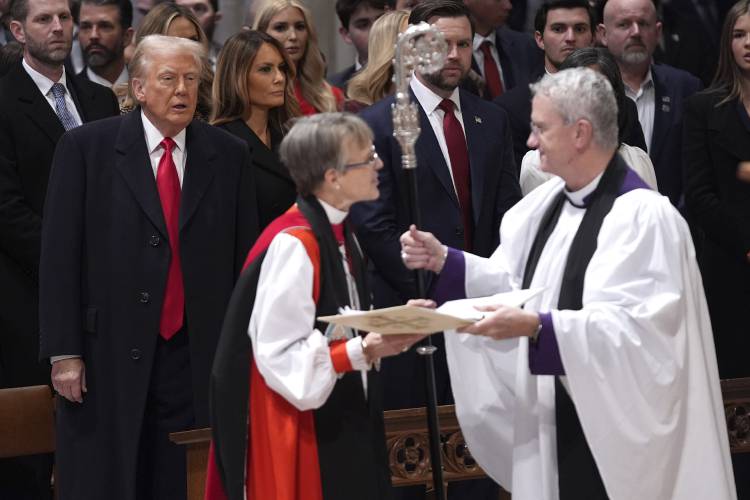
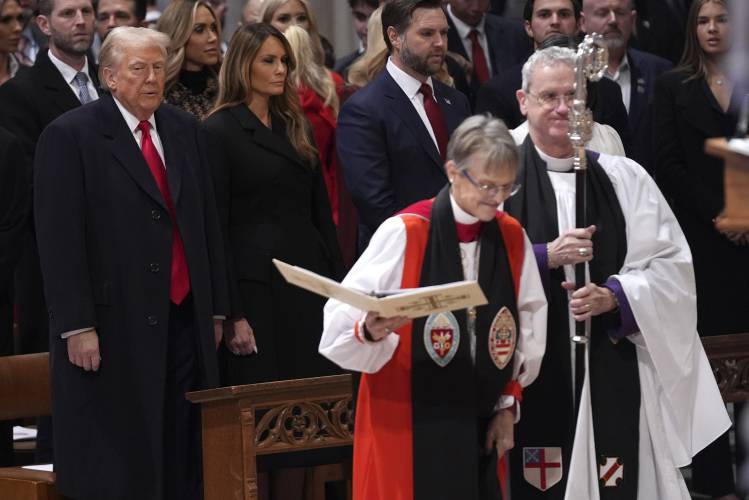
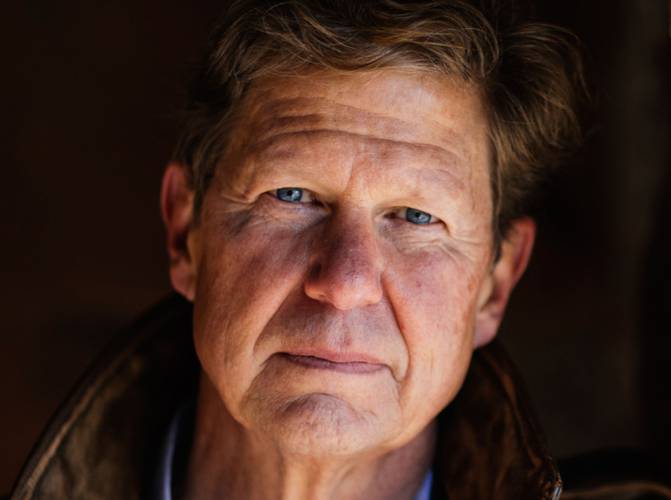





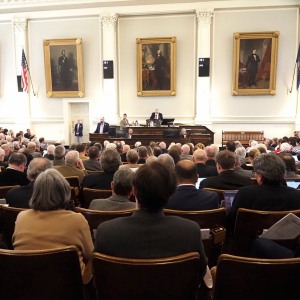 Editorial: New Hampshire budget shortfall is a crisis of Republican design
Editorial: New Hampshire budget shortfall is a crisis of Republican design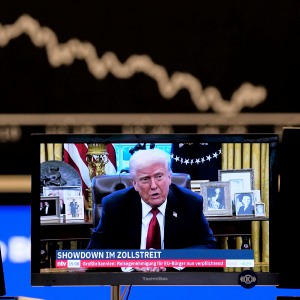 Editorial: Time is running out for American democracy
Editorial: Time is running out for American democracy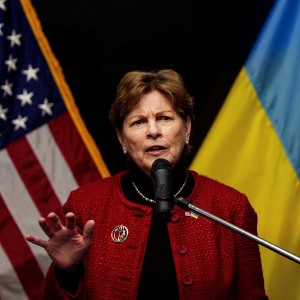 Editorial: Jeanne Shaheen blazed a trail in politics
Editorial: Jeanne Shaheen blazed a trail in politics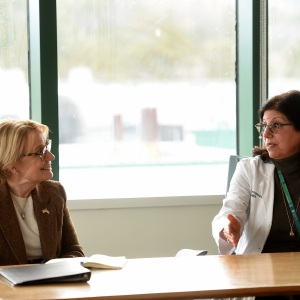 Column: Federal funding for medical research puts America first
Column: Federal funding for medical research puts America first
